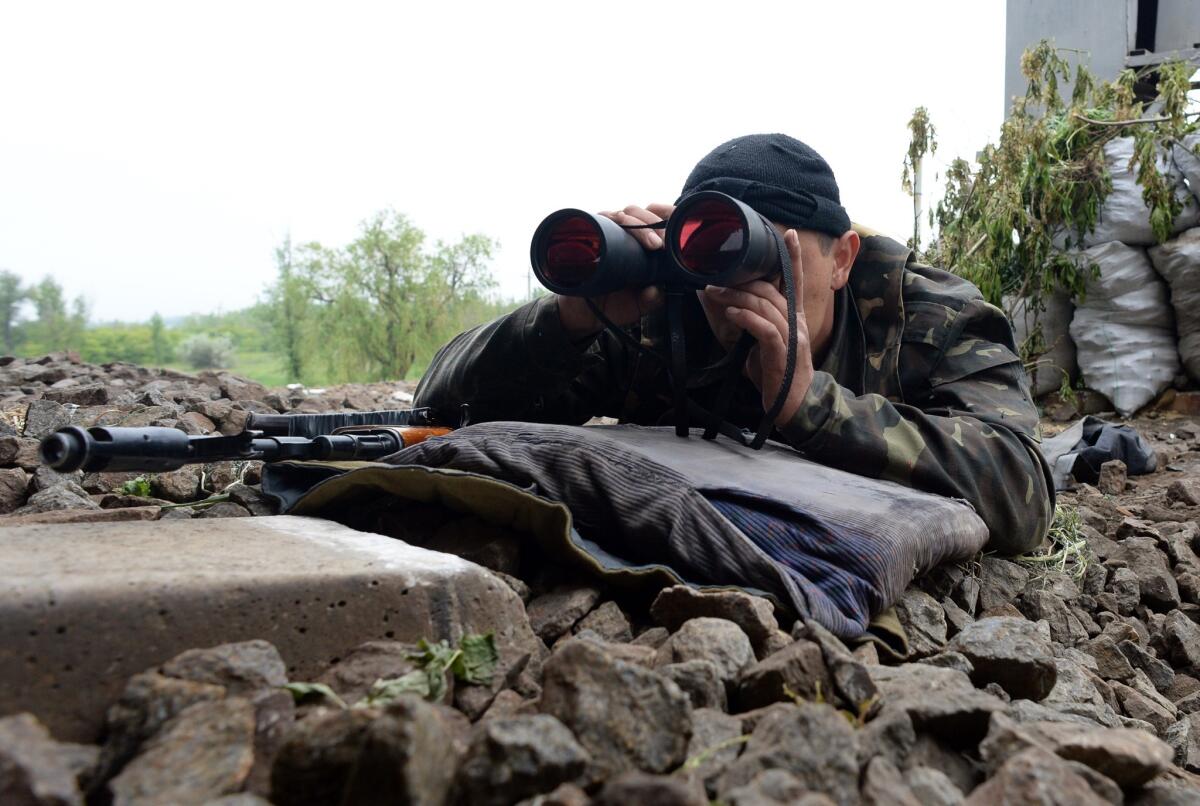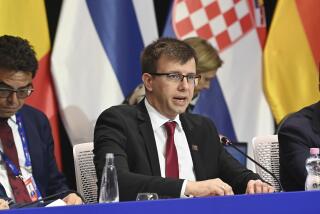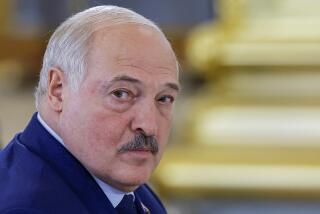EU imposes fresh round of sanctions linked to Ukraine conflict

Reporting from London — The European Union added 13 people Monday to its blacklist of Russian officials and others subject to visa bans and asset freezes for their roles in the ongoing unrest in eastern and southern Ukraine.
The names of those affected were not immediately released, but they bring to 61 the number of people on whom the EU has imposed sanctions since Russia’s internationally condemned annexation of Crimea. Those already on the list include high-ranking politicians and military officials in Moscow and pro-Russian figures in Ukraine.
Foreign ministers from the EU’s 28 countries, meeting in Brussels, said that “the absence of any steps” by Russia toward defusing the crisis in Ukraine made it necessary for them to issue the additional travel bans and asset freezes.
The ministers also broadened the spectrum of who is punishable to include those accused of undermining not just Ukraine’s territorial integrity but its stability, as well as the work of international monitors.
Monday’s announcement came a day after parts of eastern Ukraine, under the control of armed separatists, held hurried referendums on loosening ties with the central government in Kiev and possibly unifying with Russia. Organizers of the vote declared an overwhelming result in favor of more autonomy, if not outright independence.
As with a similar referendum in Crimea before its annexation by Russia in March, Western nations labeled the exercise a farce and said they would not recognize the outcome.
“These votes, these attempted referendums, have zero credibility in the eyes of the world,” British Foreign Secretary William Hague said Monday in Brussels, contending that “the people organizing them didn’t even pretend to meet” standards of transparency and fairness.
The EU also slapped asset freezes on two firms in the Crimean region.
Hague reiterated the EU’s threat to move to wider sanctions on whole sectors of the Russian economy if the tension in Ukraine does not subside. But with their own economies, linked to varying degrees with Russia, still struggling to emerge from a protracted recession and EU elections due to take place in less than two weeks, key European leaders have so far shown little appetite for more drastic measures and have refused to be drawn on what exactly would trigger them.
More to Read
Sign up for Essential California
The most important California stories and recommendations in your inbox every morning.
You may occasionally receive promotional content from the Los Angeles Times.











